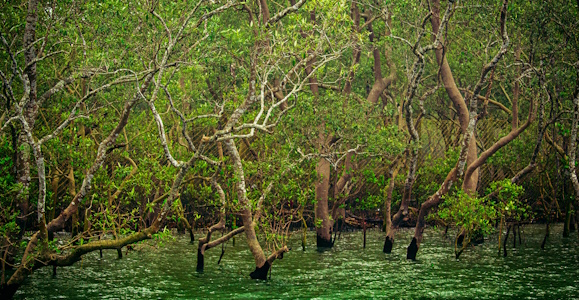
Upasona Ghosh has over a decade of experience of working in the juncture of climate change impacts, public health, and community vulnerability.
Mr. Srinivas has extensive experience in health system research and project implementation among vulnerable communities such as female sex workers, migrant labour and ethnic minorities.
During their stay at SDU they will together with SDU researchers explore the interdisciplinary research agenda: Mitigating harms of climate change in Sundarbans delta, Asia
Sundarbans, the largest mangrove delta in Asia, shared between India and Bangladesh is a home to rich biodiversity and a global climate hotspot. Climate sensitive livelihoods, such as agriculture, aquaculture, deep sea fishing are the primary sources of income in these communities. Given repeated exposure to extreme weather events, and long terms physical changes such as saltwater intrusion, loss of land, and continued erosion, livelihood and economic conditions have been drastically declined in the last decades. Situation is worst for small holding farmers who are unable to bear the cost of production due to salinity induced less productivity and recurrent erosions. As a result of these acute and chronic economic pressures, the farmers have adopted distress strategies, such as school dropout of the children, involvement in informal labour force, out-migration, sex-trafficking or early marriage of adolescent girls to support the households. These strategies often lead to anemia, micronutrient deficiencies and vicious cycle of malnutrition through teenage pregnancies and low birth weight babies.
SDU contact persons
- Angela Chang, Assistant Professor, Department of Clinical Research, SUND and DIAS achang@health.sdu.dk
- Seetha Menon, Assistant Professor, Department of Economics, SAMF smr@sam.sdu.dk
- Carolin Löscher, Associate Professor, Nordcee, Department of Biology, and DIAS cloescher@biology.sdu.dk
- Bryan Yazell, Assistant Professor, Department for the Study of Culture and DIAS yazell@sdu.dk